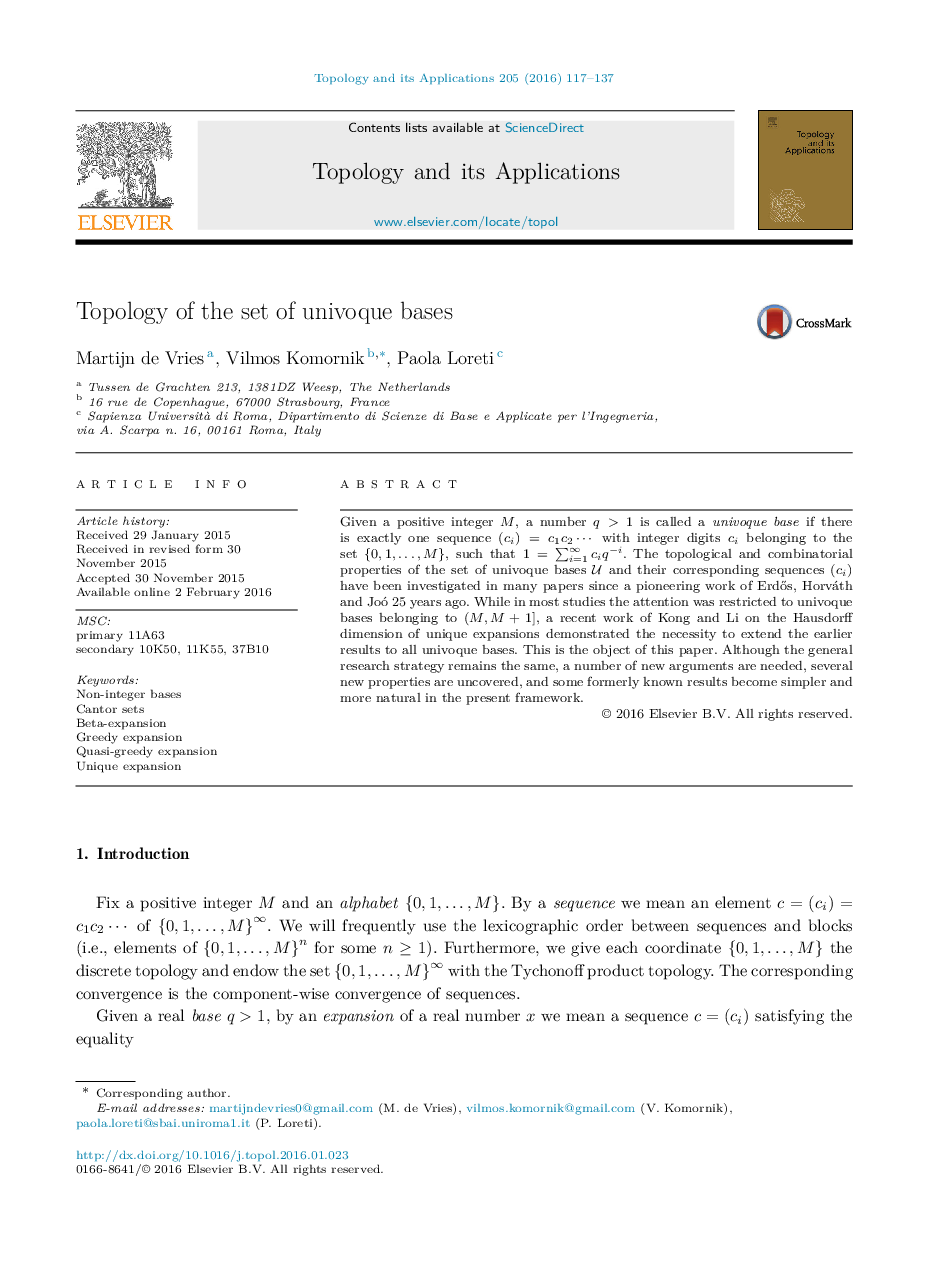| Article ID | Journal | Published Year | Pages | File Type |
|---|---|---|---|---|
| 4657989 | Topology and its Applications | 2016 | 21 Pages |
Given a positive integer M , a number q>1q>1 is called a univoque base if there is exactly one sequence (ci)=c1c2⋯(ci)=c1c2⋯ with integer digits cici belonging to the set {0,1,…,M}{0,1,…,M}, such that 1=∑i=1∞ciq−i. The topological and combinatorial properties of the set of univoque bases UU and their corresponding sequences (ci)(ci) have been investigated in many papers since a pioneering work of Erdős, Horváth and Joó 25 years ago. While in most studies the attention was restricted to univoque bases belonging to (M,M+1](M,M+1], a recent work of Kong and Li on the Hausdorff dimension of unique expansions demonstrated the necessity to extend the earlier results to all univoque bases. This is the object of this paper. Although the general research strategy remains the same, a number of new arguments are needed, several new properties are uncovered, and some formerly known results become simpler and more natural in the present framework.
